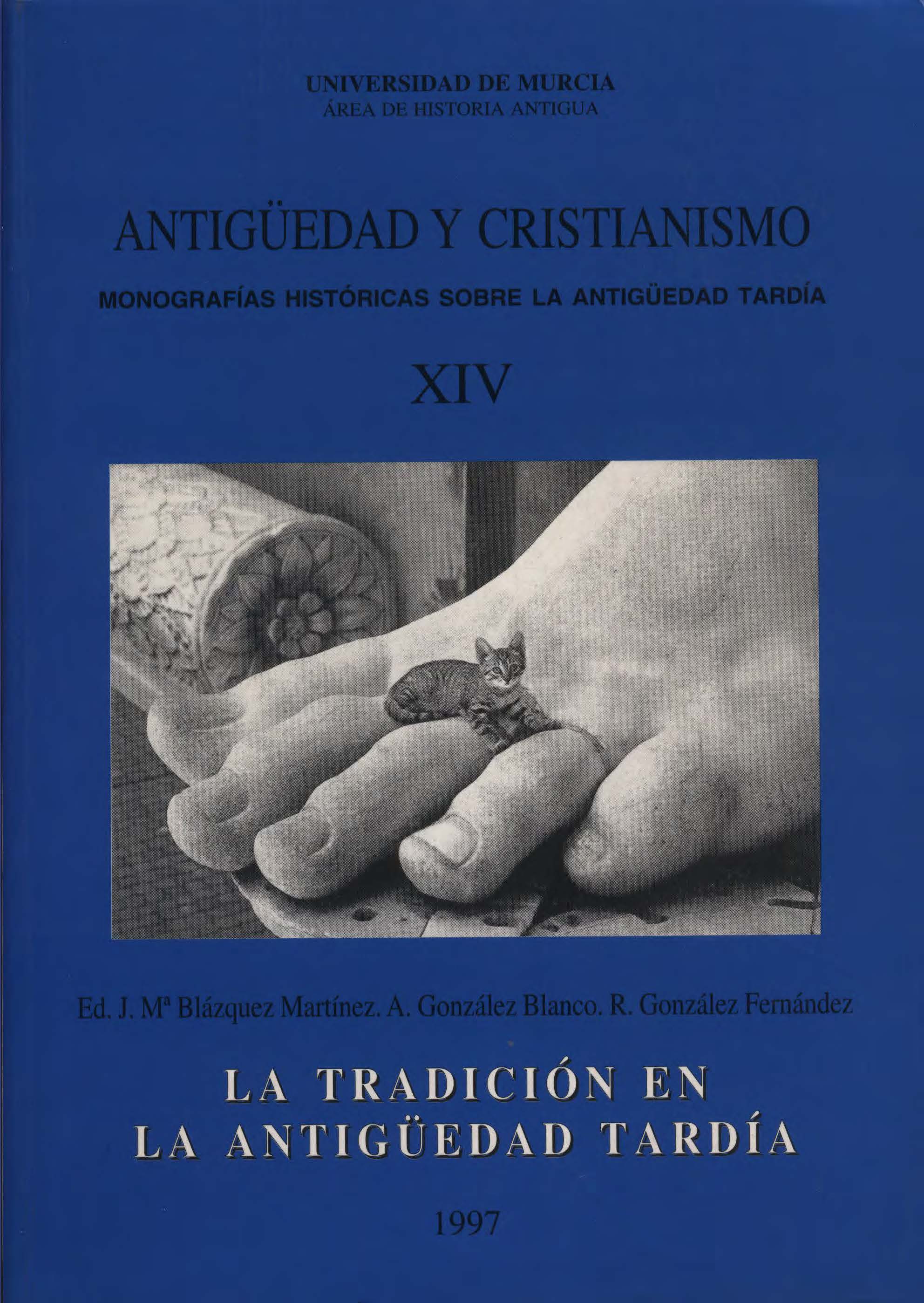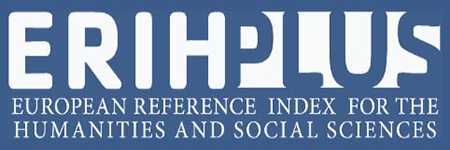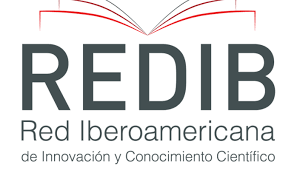TRADITION A CENTRAL THEME IN THE LIFE OF MEN
Abstract
El hombre vive de hábitos. Su instrucción al llegar a este mundo consiste en hábitos, la enseñanza del lenguaje equivale a adquirir una serie de hábitos con los que interrelacionarnos con los demás. La forma de vestir y de actuar consiste en adecuamos a unos hábitos que son usuales en nuestros círculos culturales. Por eso la tradición es el elemento clave en la configuración de grupos sociales, de culturas y de formas de vida. Y esto es perfectamente consciente en la vida de los grupos y en la de los individuos ya que nuestro comportamiento es habitual en un porcentaje que raya el cien por cien de nuestros movimientos. Y no sólo lo sabemos, también somos conscientes de la importancia que ello tiene en nuestra vida, por ello hemos constituido la pervivencia en tal sistema cultural en uno de los valores definitivos de nuestro existir: en religión, en moral, en trabajo, y en ocio y diversión a todos nos llama la atención lo que hemos vivido de pequeños y el sistema en el que hemos sido educados. Ha hecho falta llegar al sistema de comunicaciones que nos ha traído la segunda mitad del siglo XX para que hayamos podido captar la riqueza de otras formas de vida diferentes de la nuestra. (...)
Downloads
References
A. EHRHARDT, «Traditio», RE, VI A,2, Stuttgart 1937, cols. 1875-1892. (Planteamiento jurídico y bibliografía para la época)
A. GONZÁLEZ BLANCO y E. CALATAYUD, «Las inscripciones de la fachada sur de la iglesia de Santiago en Calahorran, Calakorikos 1, 1996
A. SOLIGNAC, «Tradition» Dictionnaire de spiritualité, tome XV, cols. 1108-1 125 (con amplia bibliografía)
Brockhaus Enzyklopaedie, vol. XVIII, Wiesbaden, F. A. Brockhaus, 17" ed., 1973, pp. 794-796, (recoge bien los sentidos analógicos del vocablo, y tiene una buena bibliografía)
Cl. GIUFFRIDA y M. MAZZA (Ed.), Le trasformazioni della cultura nella tarda Antichitd. Atti del Convegno tenuto a Catania Universtd degli Studi, 27 sett.-2 ott. 1982, Roma, Societi Editoriale Jouvence, 1985
E. STAKEMEIER, «Das Konzil von Trent über die Tradition*, Catholica 14, 1960, 34-48
F. BUCHSEL, «DIDOMI», ThWNT 11, 172-175
G. Boas, «La Traditionn, Diogene 31, 1960, 75-88
H. TIEDEMANN-BARTELS, Verwaltete Tradition. Die Kritik Chrles Péguys, Freiburg-München, Verlag Karl Albert, 1986
H.G. GADAMER, Verdad y Método, Salamanca 1977
J. HABERMAS, Erkennrnis und Interesse, Frankfurt a. M. 1968.
J. HASENFUSSIF. MUSSNERIJ. RATZINGER, «Tradition», Lexikon für Theologie und Kirche, Freiburg im Br., Herder, 1965, cols. 290-299
J. MICHELET, Le peuple, ed. originale, publiée avec notes et variantes par Lucien Refort, Paris 1946.
J. WERNER y E. EWIG (Eds.), Von der Spatantike zum Frühen Mittelalter. Aktuelle Probleme in historischer und archaologischer Sicht, Sigmaringen, Jan Thorbecke Verlag, 1979
J.M. LEROUX (Ed.), Le temps chrétien de lajin de 1'Antiquité au Moye-Age (IIIe-XIIIe s.). Actes du Colloque tenu du 9 au 12 mars 1981 a l'École Normale Supérieure de Paris, Paris, Centre National de la Recherche Scientifique, 1984
K. WENEGAST, PARADIDOMI, en Theologisches Begriffslexikon zum NT, en la traducción italiana Dizionario dei concetti Oiblici del NT, pp. 535-538
L. FOUCHER, La philosophie catholique en France au XIXe siecle, Paris 1955
M. FREUND, Georges Sorel. Der revolutionare Konservatismus, Frankfurt a. M. 1972.
N. HOTZEL, ~Traditiona- lismus», Lexikonfur Thologie und Kirhe, vol. 10, Freiburg im Br. 1965
N. KAMP y J. WOLLASCH, Tradition als historische Kraf. Interdisziplinare Forschungen zur Geschichte des Früheren Mittelaters, unter mihvirkung von M. BALZER, K.H. FRUGER und L. VON PADBERG, Berlin-New York
P. HAZARD, La crisis de la conciencia europea, Madrid 1948
P. MELONI, Il profumo dell'inmortalita, Sassari, 1981
P.M. DUVAL y Ed. FRÉZOULS (Ed.), Themes de Recherches sur les villes antiques d'occident. Strasbourg 1-4 octobre 1971, Paris, Éditions du Cente National de la Recherche Scientifique, 1977
R. LAUER y P. SCHREINER (Ed.), Kulturelle Traditionen in Bulgarien. Bericht über das Kolloquiun der Südosteuropa-Kommission 18.-18 Juni 1987, Abhandlungen der Wissenschaften in Gottingen, Vandenhoeck und Ruprcht in Gottingen, 1989
R. ZANOTO en Bolonia, bajo la dirección de la Profra. Fanoli Campanatti
SIEGFRIED WIEDENHOFER, «Tradition, Traditionalismusn, en O. Brunnerí W. Conze y R. Koselleck (Ed.), Geschichtliche Grundbegriffe. Historisches Lexikon zur politisch-sozialen Sprache in Deutschland, Suttgart, Klett- Cotta Verlag, 1990, vol. 6, pp. 607-650. 18 A. LESKY, Historia de la Literatura griega, Madrid, 1968
SIEGFRIED WIEDENHOFER, ((Tradition, Traditionalismus*, en O. Brun- ner/W. Conze y R. Koselleck (Ed.), Geschichtliche Grundbegriffe. Historisches Lexikon zurpolitisch-sozialen Sprache in Deutschland, Suttgart, Klett-Cotta Verlag, 1990, vol. 6
Varios, «Tradition», Die Religion in Geschiche und Gegenwart, 3" ed., tomo VI, cols. 96-986
1. The authors non-exclusively assign the exploitation rights (reproduction, distribution, communication and transformation) to the magazine.
2. The works published in this magazine are subject to the Attribution-ShareAlike 4.0 International license (CC By SA 4.0). Therefore, they can be copied, used, disseminated, transmitted and publicly displayed, provided that:
i) the authorship and the original source of its publication (journal, editorial and URL of the work) are cited, thus allowing its recognition.
ii) it is allowed to remix, transform or create from the material while maintaining the same license as the original.
Note: Articles prior to 2022 incorrectly display the CC by SA license in the abstract page. They are under a CC by NC ND license as embedded in the article pdfs. Articles published in 2022 and after are under the CC by SA license.

3. Self-archiving conditions. Authors are allowed and encouraged to electronically disseminate the pre-print (version before being evaluated) and/or post-print (version evaluated and accepted for publication) versions of their works before publication, as it favors their publication. Earlier circulation and diffusion and with it a possible increase in its citation and reach among the academic community. Color RoMEO: verde.























